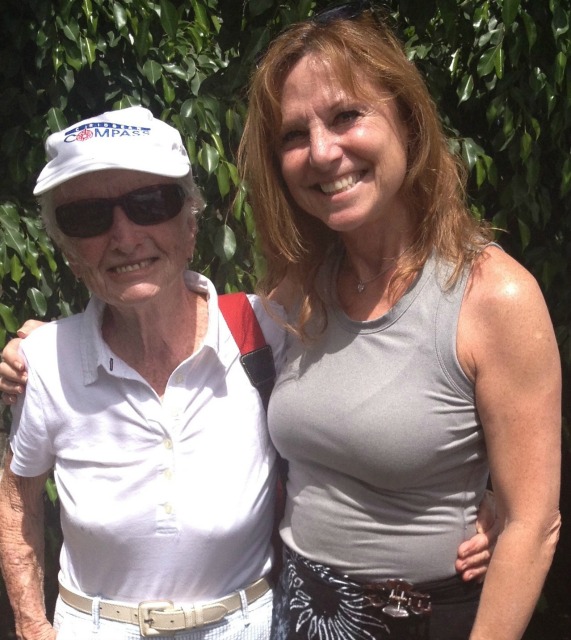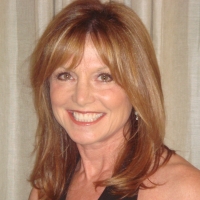It is the wee hours of the morning and I am awakened.
My mother sleeps below me, downstairs. We are in her apartment on Bequia, in the West Indies.
Not yet light, life fans out like freeze frames at this hour. The mind is fighting to rest, but thoughts begin to stream by—a rushing forth, without any ability to change the gathering torrent. I know this is a condition that plagues my mother, and the rest of us, too.
“When you wake up in the middle of the night,” she would often tell me, “do not let yourself start thinking. That is the worst time to consider anything. Your brain isn’t ready for it because it is still pretty much asleep. Tomorrow, in the light of day, everything will seem more reasonable.” I have heeded her words over the years, and her truth has borne out, but this morning I am not able to. I cannot stop my mind from thinking.
I am visiting her, a yearly pilgrimage, and it is getting more poignant every time.
At 82, or 82-and-a-half, as she has been quick to add lately, she is getting more and more tired before my very eyes. Not tired, sleepy tired, but, in some way, tired of living. It’s not that she is in a rush to die, not at all. It’s just that she is getting very tired. “I’m not into this prolonging of life where people just suffer in their last days,” she’s been telling me.I nod without speaking.
At dusk last night, standing on the expansive mahogany verandah gazing out at the placid and tranquil bay of St. Elizabeth harbor, my mother’s “island home” for the past 40 years, she turned to me, cigarette propped in one hand, the other planted firmly on her hip, and asked matter-of-factly, “So, will you be okay when I die?”
“No!” I blurt back, more out of the instinct of inescapable truth than of tempered reason. No, I won’t be okay. She turns back then, and we continue to look at the bay.
I feel like crying, and crying really hard, but instead I am taken with how much my mother is like the character John Wayne plays in those countless old westerns. All my mother lacks at this moment, I think to myself, is the cowboy hat and the horse. And she shares his persona: tough guy, yet all heart.
Mother and daughter, and more than that, friends really for all the years of our life—I say our life instead of lives because all I know is the world with Mom and me in it. It is a disquieting junction in which to sit together and wait, as if waiting for a train or a bus or a plane you hope never comes, though you know it will, because you don’t want to say goodbye, don’t want to part with this person you love with all your heart and mind and soul, with the completeness of your very being, who is leaving for his or her next destination, wherever that may be, whether it be Poughkeepsie or the great beyond.
Partings of every sort are hard to take.
It is because in our essential nature we are quite intimate with impermanence; it is the little secret we work so diligently to keep from ourselves, and dare not speak about in mixed company, though we know of its truth. We are profoundly aware of impermanence because it is from impermanence that we manifest as babies in the first place. We come from something not at all permanent—all of time before we were born—into a world that reminds us with each breath we take, and every sunset and arising we see, of the key role impermanence plays in the existence of existence, itself.
We know we are impermanent, and therefore are our relationships. Thus, we are simultaneously mourners, called upon to grieve our inevitable partings, and celebrants, invited to make merry amidst the miracle of the dance we are dancing right now, fleeting, spectacular, and unique unto its own time and place.
Achieving that feat, I think, is what is meant by enlightenment.
Being in the present moment, having the capacity to sit with, be in, relax into the moment of the here-and-now asks us to be jugglers in a way. We tolerate the secret knowing of separation and loss through the universal truth of impermanence while still allowing ourselves to be tickled with joy at the sharing of love, the sharing of now; the awareness that this moment, and then this one, and then the next, is all there really is.
Sometimes, oftentimes, I see the veneer or thin wall I erect in the moment, when things get too close, when the heartache of “awareness of ultimate separation” creeps into my consciousness, into my being-with and being-in the moment at hand, the connection right in front of me.
I can sense, within myself, the shying away from loving too much or revealing my heart too blatantly. Such overt expression can be overwhelming to others, so I use this veil of separation to protect myself from rejection. When one is aware of certain things, one can feel this turning away in others and our self, because love is a reminder of eventual loss. On some human level, we work to negate the very thing we crave—true, deep connection, being-with, safety in love, and transcendent communion.
When I leave my mom in a few days, returning from this appointed round, I will feel an aching and clenching in my chest.
As so many times before, facing the window, I will cry private, quiet tears as the plane lifts from the tiny runway of her tiny island. Later that day I will ease into the seat of a jumbo jet, returning to city lights, and congested streets, to horns, and grown children soon to marry, and work, and the news, and books to read, and all the distractions that pull us out of the feeling that I am feeling right now.
Joy, in the end, is not a giddy affair.
Joy is laced with sympathy and empathy and awareness of the impermanence that cradles us tenderly during our time together.
Gently rocking to and fro, we are made privy to the natural order of things.
Relephant Read:
The Question that Changed my Beliefs about Life, Death & Rebirth.
Author: Donna Rockwell
Volunteer Editor: Keeley Milne / Editor: Renée Picard
Photos: Author’s own.











Read 0 comments and reply